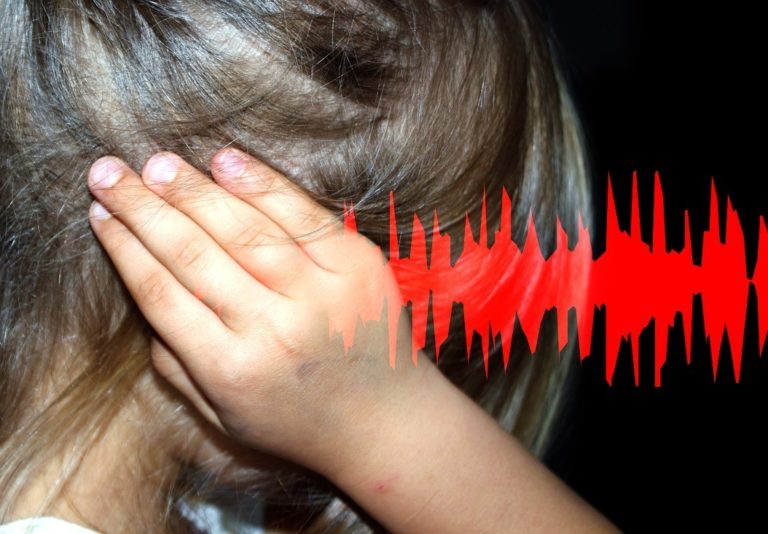
10 Possible Causes of Fatigue — and How to Resolve Them

Get full access to Outside Learn, our online education hub featuring in-depth fitness and nutrition courses and more than 2,000 instructional videos when you
sign up for Outside+.
Are you constantly tired throughout the day and can’t make it through without a nap? Has your brain fog gotten so out of control that your daily to-do list seems impossible to accomplish? Have you felt like your body and mind are out of sync when performing a simple task, let alone a tough workout?
If you’ve answered yes to any (or all) of these questions, it’s likely that your body and mind are experiencing fatigue. Fatigue is often described as feeling overtired, having low energy throughout the day and lacking basic motivation. While we may be painfully aware of the symptoms brought on by fatigue, what are the potential causes of it? The answer isn’t always simple.
Fatigue can be brought on by a series of factors, including our diet, improper thyroid function and extreme stress. Keeping our bodies in pivotal health is crucial to keep fatigue levels low and our body performing at full capacity. To help you distinguish the factors that could be leading to your fatigue, we’ve rounded up 10 possible causes backed by medical professionals and studies to help pinpoint how your environment may be attributing to your body’s lack of energy.
10 Potential Causes of Fatigue
1. Change of seasons
Your wardrobe isn’t the only thing changing with the seasons. Along with the sniffles and sneezing episodes, our body’s reaction to biological shifts brought on by seasonal changes can result in fatigue. “An allergic reaction is the result of the immune system releasing antibodies and other chemicals to fight [allergies] off,” says Dr. Jaydeep Tripathy, M.D., a primary care doctor at DoctorSpring. “These chemicals can cause our nasal tissues to swell, which can make your head feel heavy.” This discomfort and tenderness will feel like extra pressure has been added on the head, giving the body mental and potential body fatigue. Additionally, many seasonal allergy medications, like antihistamines, also can cause fatigue when trying to reduce your allergy symptoms.
What can help: While cutting out exposure to the allergy is the No. 1 way to cut allergic reactions, it’s impossible to propose never leaving your home. Instead, try “non-drowsy” antihistamines or talk to your allergist about other options.
2. Lack of proper nutrition
Ordering in takeout and purchasing processed food has made the world a lot easier. Unfortunately for our bodies, negative side effects — like fatigue — can arise from the lack of a nutrient-dense menu. A big culprit of diet-caused fatigue is a high sugar intake. When our blood sugar rises quickly, which happens when nibbling on candy and other junk food, our insulin levels spike, leading our body to feel tired. Another way nutrition helps fight off fatigue is to give our body energy through essential vitamins and minerals (don’t be shy about loading up on a daily salad or fruit smoothie).
What can help: There are a few ways to help ensure your body is getting the proper amount of nutrients. First, download a nutrition tracker application on your phone to see where your current diet is leaving holes in your nutrition count. While it may take some time to completely overhaul your diet, there are a few easy tricks to up your nutrition levels without living on green juice exclusively. One simple way is to look for brands that incorporate nutritious ingredients into their products so you can load up on nutrients while getting your snack fix.
3. Mealtimes
The time of day you dine also can cause fatigue. For instance, if you’re a late-night eater, your eating habits may be causing your unwanted fatigue. When our body eats food before bed (particularly highly processed foods that can cause heartburn or acid reflux), our sleep time becomes focused on aiding digestion rather than on increasing our energy levels.
What can help: Try eating your last meal of the day no later than three hours before bedtime to give your body ample time to digest and avoid disturbing your sleep cycle.
4. Thyroid function
The butterfly-shaped organ in our throats can be one of the leading causes of body fatigue, which oftentimes goes undiagnosed. “Fatigue is common for both hypothyroidism and hyperthyroidism,” Tripathy says. “Essentially, hypothyroidism causes your metabolism to slow down, while hyperthyroidism causes your metabolism to speed up. Either case can cause fatigue because of the overproduction or underproduction of hormones.”
What can help: If you feel like your fatigue has gotten out of your control — even when implementing changes to your diet, sleep and lifestyle — it may be that your thyroid is in need of some TLC. Contact your doctor to schedule an appointment and a blood test to see whether your levels are normal.
5. Alcohol
That hangover from last night is doing more damage than you may think. Alcohol consumption acts as a catalyst for many attributing factors to fatigue. “Alcohol acts as a depressant to the central nervous system,” says Dr. Zachary Okhah, M.D., founder and chief surgeon at PH-1 Miami. “The sedative effect causes the brain to slow down and relax. However, when too much alcohol is absorbed into the bloodstream, it takes longer for the enzymes in the liver to metabolize it, causing the excess alcohol to circulate through the body longer. The result of this prolonged process is unrestful sleep and prolonged tiredness.”
What can help: “Fatigue also results from what you don’t drink — and that’s water,” Okhah says. As your heart is beating, your metabolism is building up and breaking down tissues and energy stores to help fuel your bodily functions. “When there’s a lack of water intake,” he continues, “you experience a lower energy level, resulting in sluggishness and fatigue.”
6. Irregular sleep cycle or lack of sleep
Whether you deprive yourself of sleep on a nightly basis or yo-yo between under-sleeping and oversleeping, your body is conditioned to rely on consistent and predictable sleep patterns to function efficiently. Factors like alcohol, stress and even the pressure points in a mattress can affect your sleep’s REM cycle. When the body lacks proper sleep, the consequences result in a lack of energy, which is one of the leading causes of fatigue.
What can help: First, try to schedule sleep into your calendar. You should be going to sleep and waking up at the same time every night. To help unwind and prepare for sleep, avoid blue light from your phone, computer or TV for at least 30 minutes before bed. Also, take note of your mattress — if you’re tossing and turning a lot, it could be time for a new one.
7. Overworking at the gym
Incorporating workouts into one’s schedule is often a good thing (and can even offset fatigue). However, it is possible to overdo it at the gym and cause unnecessary fatigue. Don’t be afraid to incorporate some rest days into your week. It’s also important to properly warm up and change the muscle groups you focus on regularly.
What can help: Track the progress of goals with your workout routine. Plan your rest days, and schedule in a five- to 10-minute warm-up and cool-down — this will ensure your muscles and cardiovascular system have the necessary tools to succeed, keeping your energy levels up and muscles strong.
8. High levels of stress
You’ve lived through the year 2020 and battled a global pandemic — needless to say, the potential to have large levels of stress in your life is higher now than ever before. With the increased levels of stress, your body is pumping in more and more of the hormone cortisol, which leads to adrenal fatigue. Cortisol is the body’s premier stress hormone. Too much cortisol, according to the Hormone Health Network, can lead to Cushing’s syndrome, which causes an increase in depression and anxiety, and it also can cause rapid weight gain — all resulting in higher levels of fatigue.
What can help: While many external circumstances are out of your control, managing internal stressors is a start to help minimize cortisol levels. Incorporate mental health days into your calendar, or harness the power of meditation to help create a sense of calmness.
9. ADHD
Those living with undiagnosed attention deficit hyperactivity disorder may find themselves living with extreme fatigue at all times (no matter what healthy lifestyle choices they make). In studies performed by the National Institutes of Health, “a number of adult patients who presented primarily with symptoms of ADHD, predominantly inattentive type, also reported unexplained fatigue.”
What can help: If you feel like your fatigue has gotten out of control — even when implementing changes to your diet, sleep and lifestyle — it may be that you’re struggling with undiagnosed ADHD. Contact a medical professional to schedule an appointment, which can help you determine whether ADHD is affecting your daily routine.
10. Depression
Anyone who feels stuck in a rut may be fighting a larger battle. Just like those with ADHD and thyroid complications, those with depression can’t seem to change their levels of fatigue even with significant lifestyle changes. The National Institutes of Health says that “one of the most common residual symptoms of a partially resolved (or undiagnosed) depression is fatigue.”
What can help: For those suffering with depression, fatigue feels like an unchangeable side effect. Oftentimes, individuals with depression feel numb to change in their lifestyle. Schedule an appointment with a medical counselor to determine your next steps.
Breaking down 10 of the most common causes of fatigue can be overwhelming. Many of these factors come with life’s demanding flow and may seem unchangeable. However, it’s up to each and every one of us to make our mental and physical health a priority to avoid fatigue. Try implementing a few changes in your life or seek medical advice when appropriate, and see how your energy levels increase.
Published at Wed, 20 Apr 2022 04:29:58 -0700






